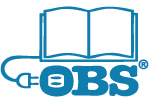With the first shipments of its e-reader tablet, the Kindle Fire, Amazon announced its new “Lending Library”—a free service available to “Prime” subscribers that allows them free access to more the 5,000 e-books. This $79.99/year membership also offers free 2-day shipping on all orders and free streaming video and music on the Kindle Fire. Sounds good for the Prime members, and even better for Amazon, the online retailer. But is this really a “lending library,” or an intellectual property heist, as some authors and publishers say, claiming that they never agreed to forgo their royalties nor gave permission for their works to be made available for free by the online retailing giant.
While the “big six” —- Random House, Simon & Schuster, Penguin, HarperCollins, Hachette, and Macmillan -— negotiated the lending library option out of their e-book contracts with Amazon, many smaller publishers were less fortunate, although apparently even outright refusals of permission didn’t stop Amazon from including some titles “as a no-risk trial to demonstrate to publishers the incremental growth and revenue opportunity that this new service presents.”*
Groups of writers and representatives have been sounding off: the Author’s Guild accused Amazon of taking advantage of others’ creative works in order to sell more of their tech devices and further their competitive advantage against their tablet-making foes Apple and Barnes & Noble; the Association of Author’s Representatives (AAR) states they are still unsure how or if the companies or creative parties will be compensated for their works.
The move further weakens the publishing industry because it plants seeds of doubt in the author/publisher relationship — how can authors trust publishers with protecting and leveraging their intellectual property if the publishers cannot control what their licensees like Amazon do with it? Furthermore, it’s objectionable that the retailer labelled their marketing gambit as a “lending library” — with the connotation of public good those words imply — rather the self-serving, competitive move it is.
Links:
*http://www.guardian.co.uk/books/2011/nov/16/amazon-kindle-lending-library-contract-authors – The Guardian
http://www.npr.org/2011/11/14/142315023/kindle-offers-lending-library-to-customers – NPR
http://aardvarknow.us/2011/11/04/author-contracts-and-subscription-models/ – Association of Authors’ Representatives (AAR) blog, featuring AAR statement re: Kindle Lending Library
